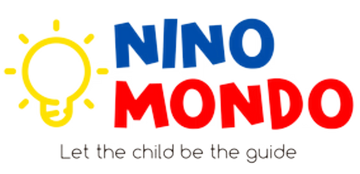
Why Children Need to Move and How Montessori Can Help!
Movement is essential for the healthy development of the mind and body! 💪👶
Montessori's approach to child-led learning and education emphasizes the importance of movement from the newborn stage.
From gross motor skills development to cognitive abilities, movement plays a critical role in a baby's growth.
Here are some reasons why movement is so important:
Fine and Gross Motor Skills Development: Children need to move to exercise their muscles and refine their gross motor skills development.That’s how they learn to control their movements and develop coordination, balance, and strength.
This is important for their physical development, as well as for their cognitive and emotional development.
Brain Development: Movement is essential for brain development. When children move, they stimulate their brains and create new neural connections.
This helps them develop cognitive skills such as problem-solving, attention, and memory.
Social Development: Movement is crucial for social development. Child led learning is all about their environment and the people around them when they move.
They develop social skills such as communication, cooperation, and empathy. They develop agility and problem-solving skills as they circumnavigate obstacles and people.
Language development: Movement is closely linked to language development. As little children move and explore, they hear and experience a variety of sounds and words, which helps them develop their language skills.
Emotional Development: Movement is also important for emotional development. When children move, they learn to regulate their emotions and express themselves.
This is important for their emotional well-being and mental health. Plenty of movement also tires children leading a good night's rest crucial for the brain to reset and process the knowledge obtained from the activities of the day
How Montessori supports and encourages movement in little children?
The prepared environment concept in Montessori caters to children’s natural desire to move and explore their surroundings.
Here are some ways that the Montessori approach can help provide avenues for movement:
Create a safe and stimulating environment: Children need a safe environment supporting their natural desire to move and explore.
Create a space that is free from hazards and provides opportunities for your child to move and explore.
Encourage tummy time: Tummy time is essential for a child's physical development. Support your child during tummy time to help develop their neck and core muscles.
Freedom of Movement: Montessori emphasizes the importance of freedom of movement for children. Children must be allowed to move and explore their environment at their own pace.
This fosters observation skills in them and helps them in their gross motor skills development and coordination.
Sensory materials: Montessori toys are designed to provide children with a range of sensory materials that support their development.
These toys are carefully designed to stimulate the senses and support their fine and gross motor skills development.
Child Floor Beds: Use floor beds instead of cribs to encourage children to move and explore their environment.
Child floor beds allow children to move freely and safely, which is important for their physical and cognitive development.
Child led learning: In Montessori, learning is child-led. Children should be encouraged to follow their own interests and explore their environment at their own pace.
This approach supports the development of self-regulation and intrinsic motivation and leads to the development of spontaneous discipline.
Practical life activities: Involve children in practical life activities that support their physical and cognitive development.
These activities include things like pouring, sorting, and stacking, which help develop body awareness, proprioception, and their stereo gnostic sense.
Movement Activities: Montessori incorporates movement activities into the curriculum to support child development. For example, children are encouraged to crawl, roll, and climb to develop their gross motor skills.
Outdoor Play: Montessori encourages the importance of outdoor play for development. Outdoor play provides a healthy outlet for their energy and also develops risk-taking abilities.
In Conclusion, Children need to move to develop their physical body and mental cognition. Employ the Montessori at-home approach to provide a supportive environment and opportunities for children to move indoors and explore their surroundings whilst outdoors.
Montessori materials and activities are designed to support child movement and exploration, and outdoor play is encouraged to support social, emotional, and gross motor skills development.
By supporting the child movement, Montessori helps children develop the skills they need to thrive physically, cognitively, and emotionally.
